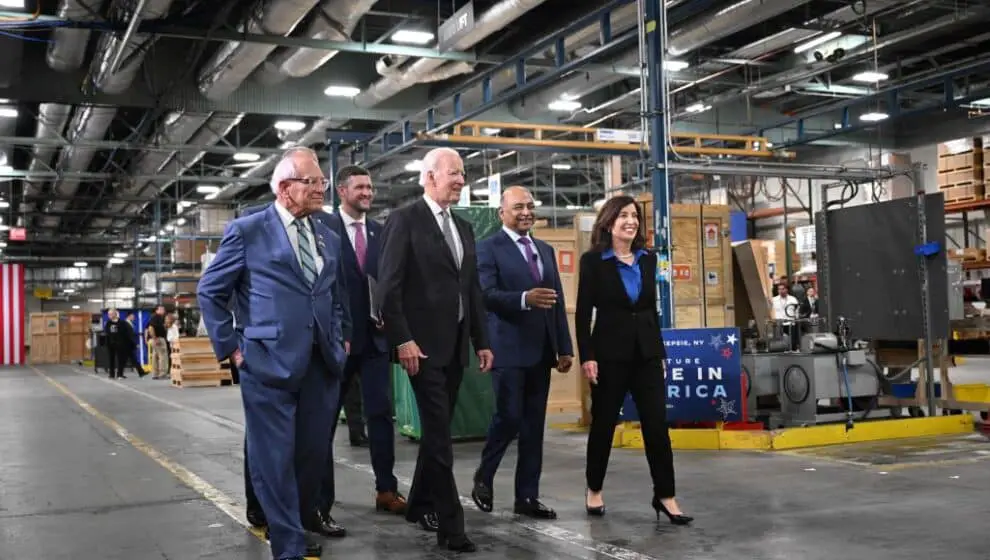On Thursday, IBM announced its plans to invest $20 billion in New York’s Hudson Valley area over the next 10 years.
Key Details
- Though the specific investments IBM plans to make haven’t been announced yet, the investment will focus on semiconductors, computers, hybrid cloud, artificial intelligence, and quantum computers.
- IBM’s announcement happened during a visit from President Joe Biden who was visiting the company’s Poughkeepsie location.
- Biden’s administration has been promoting industrial and technological investment in the U.S.
- “Our vision is for the (Poughkeepsie) site to become a global hub of our quantum computing development, just as it is today for mainframes,” the company CEO Arvind Krishna says in a statement.
Why it’s news
IBM’s investment in the Hudson Valley area comes not long after President Biden’s signing of the Chips and Science Act. The legislation featured $52 billion dedicated to promoting the production of microchips in the U.S.
The incentive to move chip production to the U.S. is an attempt to compete with Chinese production. During the pandemic, supply chain disruptions resulted in a shortage of semiconductor chips, small but significant components of nearly every modern device ranging from washing machines to vehicles to military weapons.
So far, the Chips Act combined with the Inflation Reduction Act—which in part contains incentives for green energy—seems to be successfully drawing production to the U.S.
Micron, one of the largest U.S. chipmakers, announced plans in September to invest $15 billion in a new factory located in Boise, Idaho.
Construction on Micron’s new factory will begin in 2023. When completed, it will be the largest chipmaking cleanroom, or fabrication room, in the U.S. at 600,000 square feet.
By 2025, parts of the factory will be operational and the factory will continue to expand in phases. When completed, the facility is estimated to create 17,000 jobs.
Micron isn’t the only manufacturer looking for more work space. Other chip-making companies like Intel have been increasing their production facilities in the U.S.
While the Chips Act and Inflation Reduction Act lure manufacturers to the U.S., the legislation simultaneously pulls manufacturers from China, though China’s grip on manufacturing remains strong.
Tariffs put in place during the Trump administration, sanctions on Chinese tech manufacturers, and some direction from the Biden administration have indicated a trend against U.S. and Chinese trade.
Private business relationships with China have suffered just as much as government relations.
China’s COVID Zero policy combined with unrest in the region has led to optimism from U.S. firms reaching an all time low. Of companies surveyed by the U.S.-China Business Council, over half have delayed or canceled plans in China.
Companies that are leaving China aren’t traveling far. They are shifting to neighboring countries like India, Vietnam, and Indonesia.
